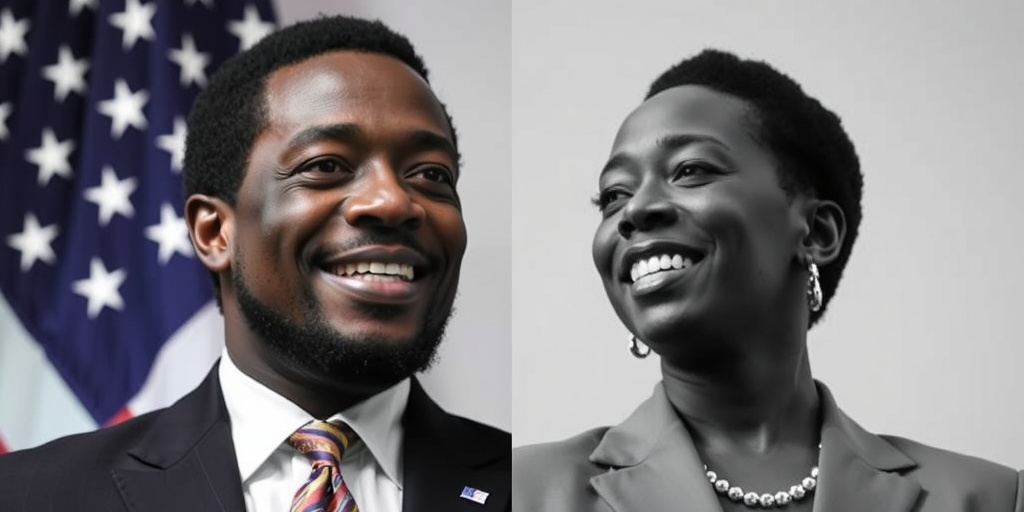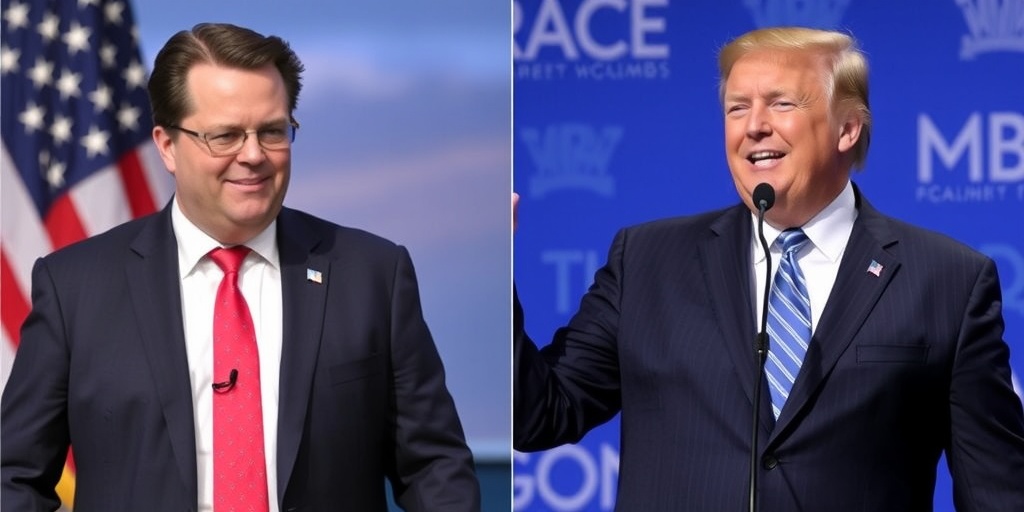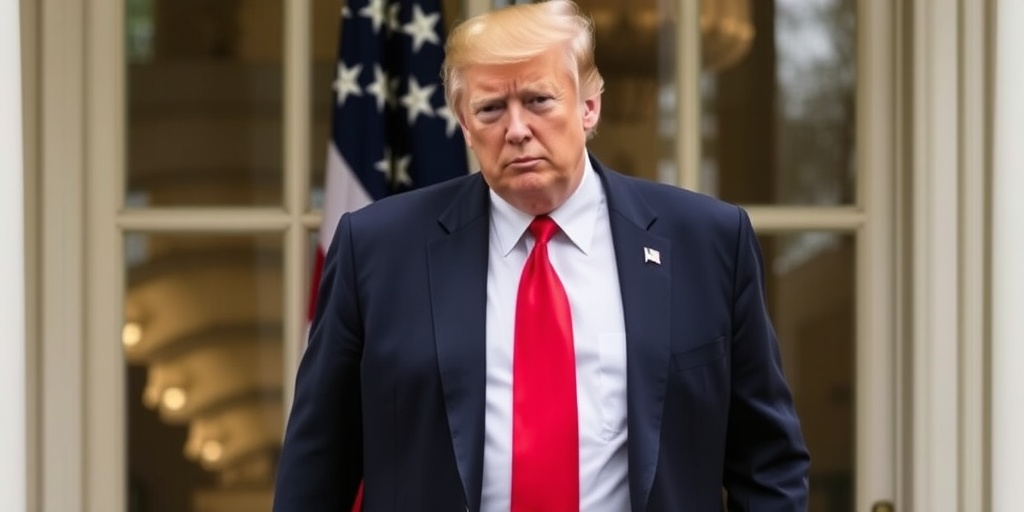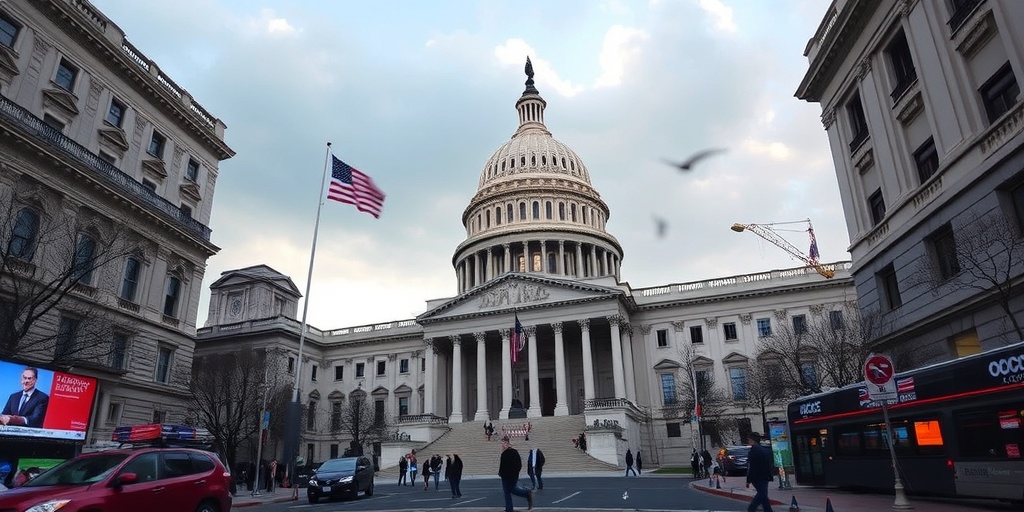Now Reading: Frustrated Democrats Push for Stronger Action Against Trump
-
01
Frustrated Democrats Push for Stronger Action Against Trump
Frustrated Democrats Push for Stronger Action Against Trump
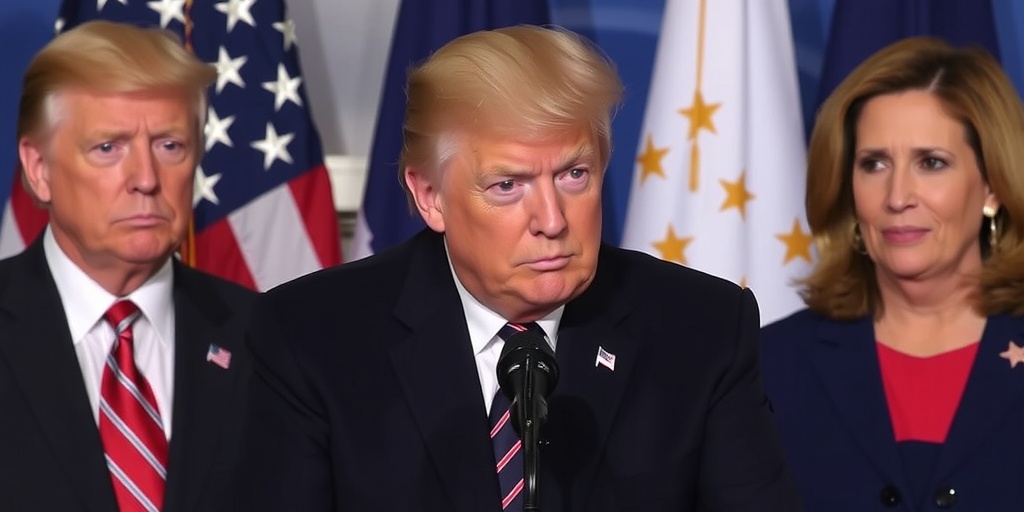
Democrats Urged to Take Action as Trump Administration Seizes Control
In the aftermath of President Trump’s second inauguration, a palpable sense of frustration is emerging among Democratic voters and activists, urging party leaders to take decisive action against the resurgent Republican administration. One month into Trump’s new term, these sentiments are rippling across the nation, from passionate protests to heated discussions at town halls, signaling a significant shift from previous depressive inaction to assertive calls for change.
The growing unrest is evident in numerous anti-Trump demonstrations unfolding nationwide, reflecting widespread dissatisfaction among Democratic constituencies. Polling data reveals an alarming trend: many Democratic voters expressing disapproval of their congressional representatives’ efforts, or lack thereof, to counteract Trump’s agendas. Recent interviews with citizens, activists, and elected officials reveal a widespread belief that the Democratic leadership is failing to take a proactive stance against Trump’s administration.
Pennsylvania Governor Josh Shapiro, a prominent Democratic voice, articulated the frustrations of many when he criticized the party’s inadequate responses to the new administration. In a candid interview, Shapiro emphasized that both parties currently struggle to serve as an effective check on the executive branch, underscoring a critical failure in addressing the genuine concerns of constituents. He lamented that congressional Democrats have not embraced their constitutional duty to oppose the executive branch robustly.
As Republicans consolidate their power in Congress, the urgency for a coherent Democratic response intensifies. Trump’s nominees have sailed through Senate approvals—a reflection of the Republican majority’s alignment with his administration. Compounding this challenge, the GOP-controlled Senate recently passed a budget plan prioritizing increases in border security and military spending, leaving Democrats feeling sidelined and powerless.
Polls, including one from Quinnipiac University, indicate that discontent is rising among Democrats about their leaders’ performance. A staggering 73% of surveyed Democrats believe that congressional members are not doing enough to oppose Trump. Local Democratic leaders, such as Theresa Reid from Washtenaw County, Michigan, have echoed those sentiments, expressing the need for strong, vocal opposition from party officials to combat the current administration’s policies. Reid noted a lack of visible outrage from top Democrats and urged national leaders to elevate their fight.
Ezra Levin of the activist group Indivisible identified a pervasive sentiment among constituents demanding more vigorous action from elected officials. The frustration is so acute that some Democrats, like Jessica Ruiz from Philadelphia, report that their disappointment with party leadership has even overshadowed moments of celebration, such as the Philadelphia Eagles’ recent Super Bowl victory. Ruiz articulated that while they come together to celebrate sports, they fail to unite in vocal opposition to political leaders.
Despite the call for urgency, some within the Democratic Party advocate for a more measured approach, suggesting that public sentiment towards Trump might shift over time. However, many view such patience as a hindrance to necessary immediate action. With a minority presence in Congress, Democrats also grapple with potential repercussions for dissenting voices against Trump or his allies.
Amid these discussions, a broad spectrum of opinions exists within the Democratic ranks. Representative Marie Gluesenkamp Perez warned against reacting impulsively to Trump’s actions, advising that it is imperative to focus on building consensus among voters to address pressing issues rather than alienating moderate constituents.
Democratic leaders are presently confronted with a critical test involving spending clashes with Republicans. They are striving to balance electoral strategy with the urgency to respond to Trump’s rapid policy shifts. In response, they have conducted press conferences, utilized social media platforms, and organized protests aimed at presenting Trump as a champion of elite interests, often at the expense of working-class Americans.
Governors within the Democratic Party, who typically wield more authority than congressional representatives, are examining how best to assert resistance against Trump. Illinois Governor JB Pritzker has publicly declared his intent not to yield to Trump, urging citizens to actively engage in resisting harmful policies. However, the complex nature of relationships and perceived dependencies on federal support complicate the efforts of various governors, who often face the dual challenge of opposing Trump while safeguarding their states’ interests.
As they navigate these turbulent waters, Democratic governors are cautiously critiquing Trump’s behavior, citing an array of threats and inflammatory statements. Yet the dynamics of political maneuvering are evident as some express reluctance to fully confront the Trump administration, often succumbing to the fear of potential repercussions.
Ultimately, voices of dissent from within the party’s rank and file are becoming increasingly pronounced, signaling a urgent demand for collective action against Trump’s administration. Democratic representatives must now consider the extent to which they can advocate for their constituents without alienating potential allies in a nation sharply divided along partisan lines. The coming months will indeed test their resolve as they seek to reclaim not only their party’s identity but their commitment to the American electorate at large.
Stay Informed With the Latest & Most Important News
Previous Post
Next Post
-
 01New technology breakthrough has everyone talking right now
01New technology breakthrough has everyone talking right now -
 02Unbelievable life hack everyone needs to try today
02Unbelievable life hack everyone needs to try today -
 03Fascinating discovery found buried deep beneath the ocean
03Fascinating discovery found buried deep beneath the ocean -
 04Man invents genius device that solves everyday problems
04Man invents genius device that solves everyday problems -
 05Shocking discovery that changes what we know forever
05Shocking discovery that changes what we know forever -
 06Internet goes wild over celebrity’s unexpected fashion choice
06Internet goes wild over celebrity’s unexpected fashion choice -
 07Rare animal sighting stuns scientists and wildlife lovers
07Rare animal sighting stuns scientists and wildlife lovers













